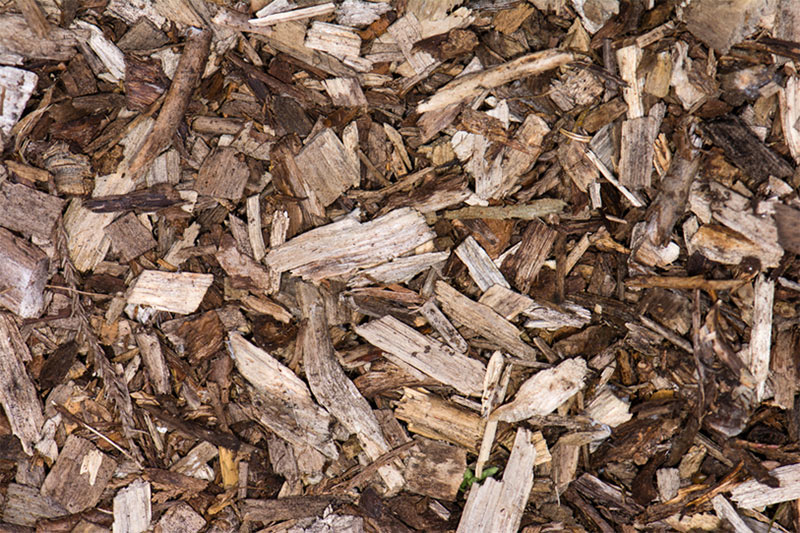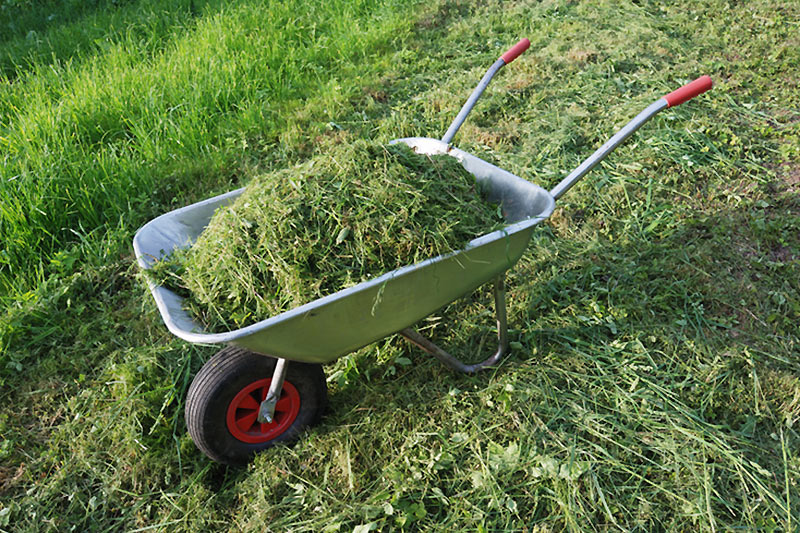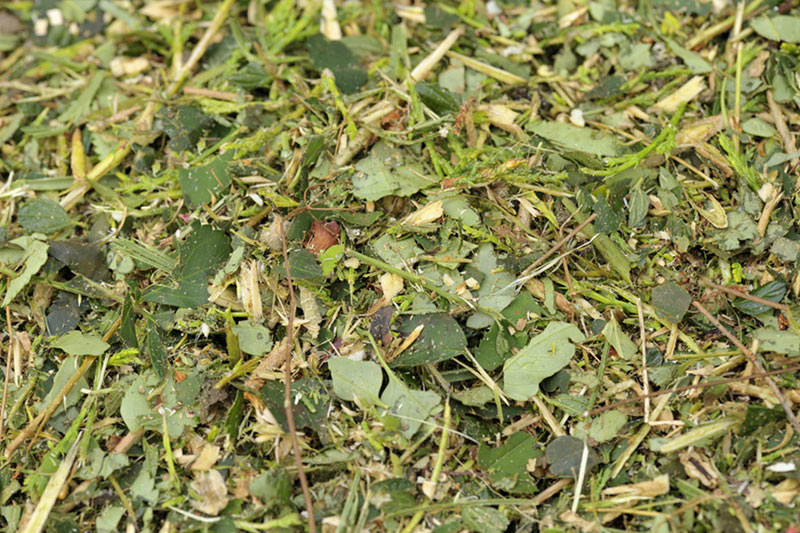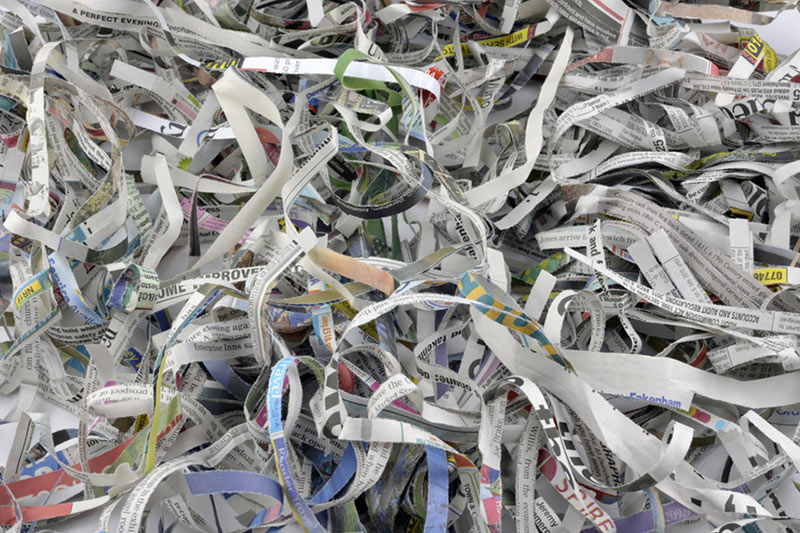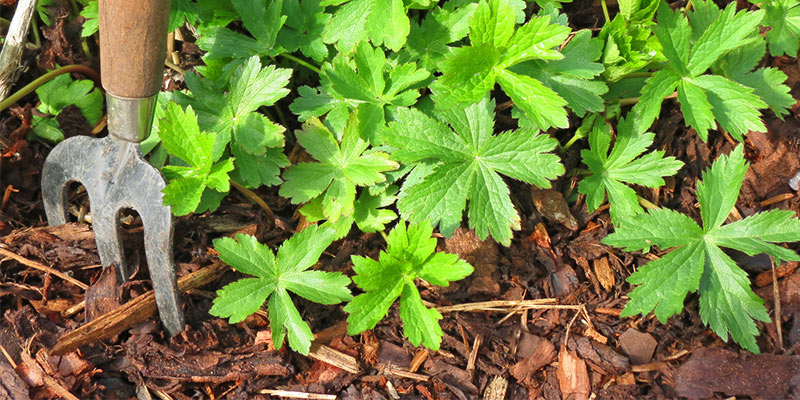
Weeds can take over a veggie garden if you forget to weed for a few days. If you have shrubs and trees, it is easy to pick up a bag of wood chips to lay across the front of your house. Picking the right mulch choice for your veggie garden is a bit more complicated.
You may be surprised at the choices many gardeners select if you are new to mulching. I have used a variety of options such as newspaper, grass clipping, burlap, leaves and wood chips. You could select to use plain, black plastic, but I prefer to use an organic mulch. Let’s take a look at why I use organic mulch and the choices available to you.
Benefits of Organic Mulch
You don’t have to use mulch. A garden can still be successful without any mulch laid down, but the benefits make the physical labor worth the time. Mulch also gives you several positives to consider.
- Mulch prevents weeds from germinating and growing! Sunlight is unable to reach the weeds, causing them to die due to lack of sunlight and air circulation. It is best to apply two inches of mulch if your primary goal is to kill weeds. Most people use mulch to stop the growth of weeds; it is a lot less work for you!
- You can use mulch to retain soil moisture, which means you don’t have to water as frequently! Once again, mulch is saving you some time.
- Mulch protects your plants’ roots from frost during cold weather. If you want to protect your early spring veggies, mulch can prevent frost from damaging your precious plant.
- One of the best reasons to use organic mulch is that it adds nutrients to your soil. Plastic adds nothing to your soil. However, organic mulch decomposes over time, leaching nutrients right into your soil. For example, pine needles add acid to your soil. If you have azalea bushes, a layer of pine needles boosts your plants!
- Mulch helps to regulate soil temperatures, especially during early spring. Spring is known for a large fluctuation of temperatures. Mulch can help to keep your soil cooler during warmer weather by retaining moisture. During cooler weather, mulch can keep heat in the soil.
Top Choices for Mulch in Your Veggie Garden
There are so many options for mulch! It can be hard to make a final choice. Luckily, there are benefits to all types, so any choice is better than no mulch at all.
- Wood Mulch: Let’s start with the most frequently used mulch – wood. It is better to use wood mulch around your trees and shrubs because it can be hard to move them aside to plant your veggies. However, wood lasts for a long time, even into the next year.
- Grass Clippings: Everyone loves the word free, and chances are you have an abundance of grass clippings. There are positives and negatives to grass clippings. They are best to use if your main goal is to keep down the weeds. When they decompose, nitrogen seeps into your soil, a benefit to many plants. There are some negatives to consider as well. Grass clippings decompose fast, so you need to lay layers down frequently. Also, the grass smells odd; your garden may be stinky!
- Straw: Despite the added cost, straw is an awesome choice for mulch in your veggie garden. I love mulch along my walkways to decrease mud, especially during springtime. In your garden, straw will decompose, but slower than grass clippings. Chances are you will only have to lay one application for the year. Also, you can easily move straw aside when adding more plants to your garden beds.
- Shredded Leaves: Another free choice for you is shredded leaves! Worms love to munch on leaves, leaving behind nutrients for your garden. As leaves decompose, nutrients help the growth of your plants. As you can expect, the largest negative is the look. You won’t win the “Beautiful Garden of the Year” award, but you will have an awesome bounty.
- Newspaper: Many printing companies switched to organic dyes, so newspaper is gaining popularity as a mulch. Newspaper can be used, in layers, to help suppress weeds. It will also keep the moisture in the soil around the roots. My favorite way to use newspaper is to lay it down at the bottom of my raised beds to help kill grass.
There is no reason to purchase multiple gardens of expensive mulch when your property can give you inexpensive options. Beauty isn’t the goal for most gardeners. If it is for you, go for the wood mulch or straw. However, any organic mulch benefits your soil and reduces the time you would’ve spent pulling weeds. The only hard part is figuring out which is right for you!
About Tina Martino:

Her passion is gardening. Along with her husband and children, each year they grow a garden large enough to provide their family of five with over half of our needed produce. Besides vegetables and a small berry patch, she also focus her attention on beautifying their home with strategically placed flowers, herbs, and flowering plants. Gardening is more than just a hobby; it is a way of life.

